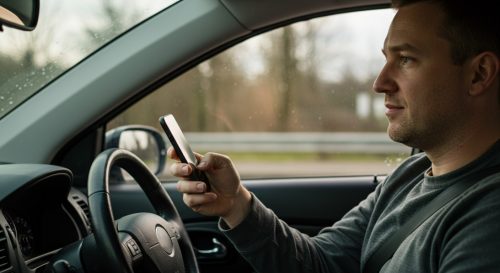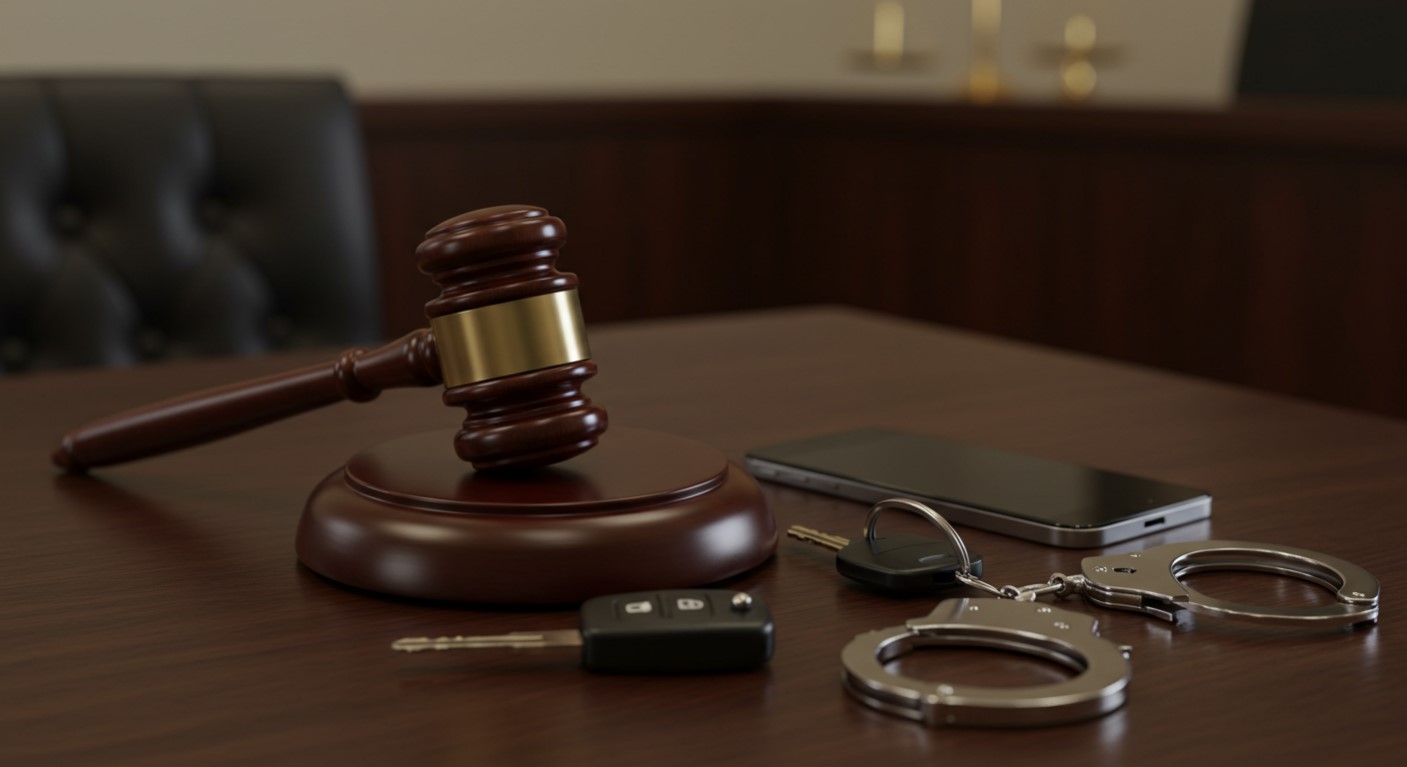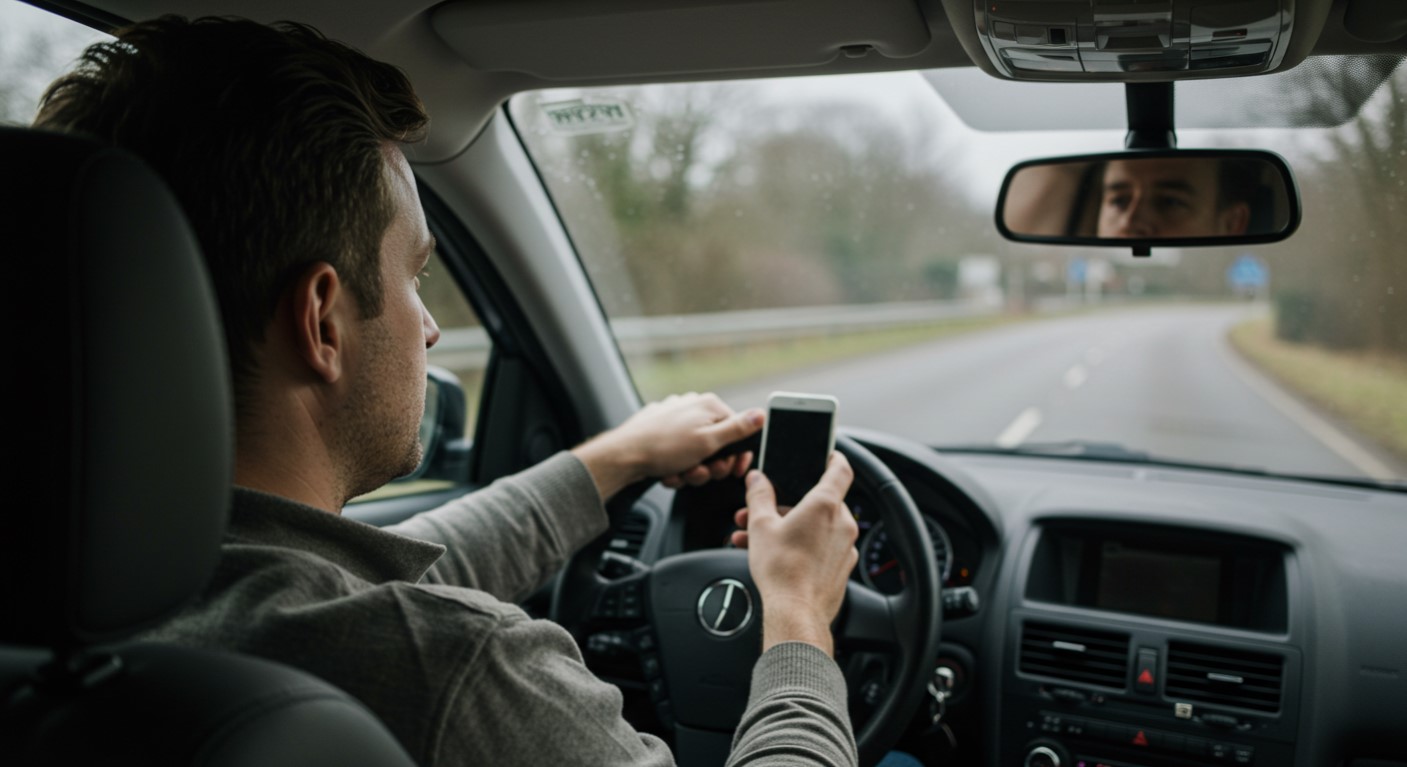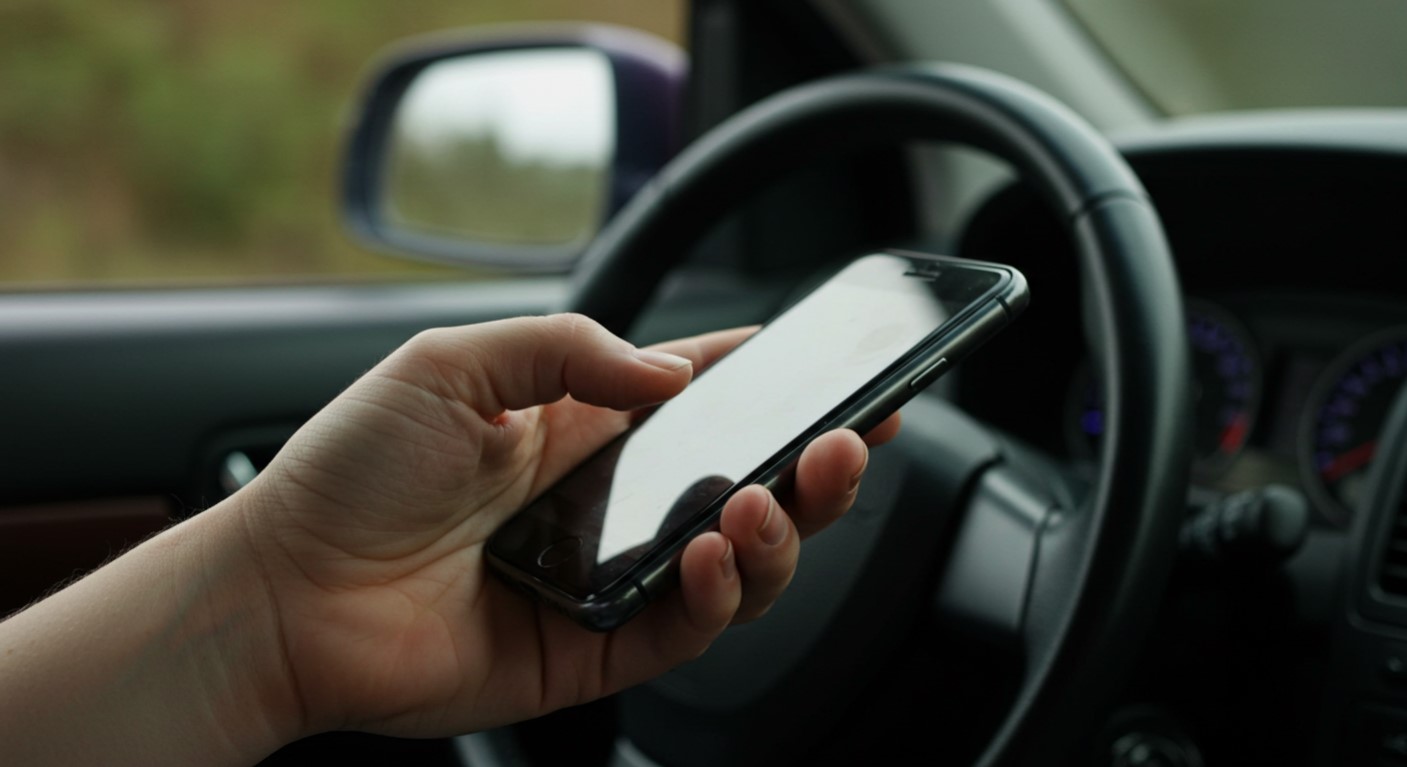Using a Mobile Phone While Driving in England: The Law, Consequences, and the Importance of Seeking Legal Advice

Using a Mobile Phone While Driving in England: The Law, Consequences, and the Importance of Seeking Legal Advice
Using a mobile phone while driving is a dangerous behaviour that not only jeopardises road safety but is also illegal in England.
The Legal Framework

- The Offence
- Using a mobile phone while driving is a violation of Section 41D of the Road Traffic Act 1988. This legislation categorically prohibits all drivers from using handheld or hands-free mobile devices while operating a vehicle.
The Road Traffic Act 1988 serves as the legal foundation for regulating road use and safety in England. It includes provisions that govern various traffic offences, including those related to the use of mobile phones while driving.
- Exceptions
- While the law is stringent, there are limited exceptions that permit the use of mobile phones while driving. For instance, drivers can use their mobile phones to make emergency calls to 999 or 112 when it is unsafe or impractical to stop the vehicle. Otherwise, the law presumes that drivers should not engage in any form of mobile phone use while driving.
Consequences of Using a Mobile Phone While Driving

- Penalty Points
- Offenders caught using a mobile phone while driving typically face the imposition of 6 penalty points on their driving licence.
- Fines
- In addition to penalty points, offenders may receive fines. The exact amount of the fine can vary based on the seriousness of the offence and whether it is a first-time or repeat violation. Fines can range from several hundred to a thousand pounds or more.
- Possible Disqualification
- In some cases, the court may consider disqualifying the offender from driving, especially if the driver is a repeat offender or if the violation resulted in a serious accident. Disqualification periods can vary in length.
- Increased Insurance Premiums
- Convictions for mobile phone use while driving can lead to higher car insurance premiums. Insurers often view such drivers as higher risk, which can result in significantly increased insurance costs.
Why You Should Seek Legal Advice

- Understanding Your Rights
- Legal professionals can provide a clear understanding of your rights and the specific charges you are facing. They can explain the legal elements of the offence and the evidence required for a conviction.
- Assessing the Evidence
- Solicitors and legal experts can meticulously assess the evidence against you. They will examine factors such as witness statements, police reports, and the circumstances of the alleged offence to determine whether there are grounds for a defence.
- Challenging the Allegations
- Legal representatives can craft a robust defence strategy tailored to your case. This may involve challenging the evidence, questioning the legality of the stop or search, or presenting mitigating factors, such as genuine emergency situations.
- Negotiation
- Solicitors can engage in negotiations with prosecutors on your behalf. They may seek reduced charges or alternative resolutions, particularly for first-time offenders. This can potentially result in a lesser fine or fewer penalty points.
- Peace of Mind
- Having legal representation provides peace of mind during a stressful legal process. Your solicitor will guide you through the proceedings, ensuring your rights are protected and that you have the best possible defence.
Conclusion: Using a Mobile Phone While Driving in England

Given the intricacies of cases involving mobile phone use while driving and the potential impact on your driving record and finances, seeking legal advice and representation is highly advisable.
Solicitors specialising in criminal law can help you navigate the legal system, build a strong defence, and negotiate with prosecutors on your behalf.
Legal advice is paramount for achieving a favourable outcome and minimising the consequences of a mobile phone use while driving charge on your life and driving privileges.
In cases of alleged mobile phone use while driving, legal advice is not just valuable; it is essential to ensure your rights are protected and your interests are safeguarded.
Notice: Informational Content Disclaimer
The content provided on this website, including articles, blog posts, and other informational materials, is intended for general informational purposes only. It is not intended as, and should not be considered, legal advice.
Visitors to this website should be aware that the information presented here is not a substitute for seeking legal advice from a qualified solicitor or legal professional. Each individual's legal situation is unique, and the information provided may not be applicable to specific circumstances.
If you require legal advice or have specific legal questions, we encourage you to contact us directly. Our experienced team of solicitors is here to assist you with your legal needs and provide tailored advice to address your concerns.
Please be advised that any communication through this website, including the use of contact forms or email, does not create a solicitor-client relationship. Confidential or time-sensitive information should not be sent through this website. To establish a solicitor-client relationship and discuss your legal matters in detail, please contact us for a consultation.
We strive to provide accurate and up-to-date information, but we make no representations or warranties regarding the accuracy, completeness, or suitability of the information contained on this website. We shall not be liable for any reliance placed on the information provided herein.
Thank you for visiting our website. We look forward to the opportunity to assist you with your legal needs.




